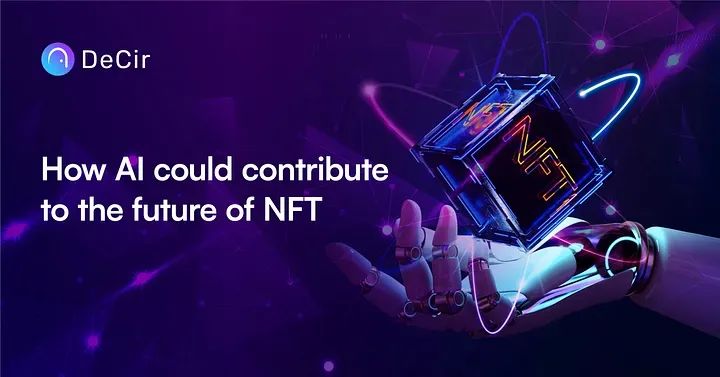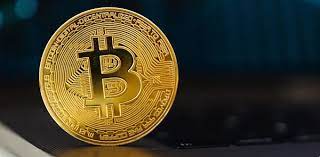POS mortgages make money look good, but there may be fatal loopholes?
At first glance, holding these coins is very attractive. By pleasing your currency, you get 4-15% of your annual income. But where does the money come from? Of course, the only money that can come from: other people who are not mortgaged.
Mortgage rewards are created by inflation. If everyone holds all the coins that a particular crypto asset is collateralized, then the amount of SGD each person gets (in a vacuum) is proportional to their existing ownership. Therefore, at the end of each period, each person’s ownership of the assets is exactly the same as before.
On the other hand, if only a small portion of the currency is mortgaged, the collateral of those coins will indeed become richer, at the expense of those who are not mortgaged. The ownership of the uncollateralized person is actually diluted by the new currency issued to the mortgagor.
- Why does the betting DAPP do not need to be issued?
- Analysis of the market: On May 1st, the fixed investment in multiple positions will gradually reduce profits, and the bag will be the king.
- Getting started with blockchain | What is a 51% power attack?
To give a concrete example, let's assume that there is a fictitious coin called PIE.
PIE's mortgage reward is 10% per year. At the beginning of the year, there were 100 coins and 10 holders, each holding 10 coins. Suppose that half of the holders mortgage their currency for one year, while the other half does not.
At the end of the year, each mortgagor will receive one more coin, that is, 11 coins for each mortgagor, and 10 coins for each non-mortgage. The total supply has increased by 5% for a total of 105 coins. Each mortgagor who previously owned 10% PIE now has 11/105 = 10.4% PIE.
At the same time, the proportion of each non-mortgage's equity is reduced to 10/15 = 9.55% PIE. Please note that although these mortgagers have a nominal rate of return of 10%, their actual rate of return is 4.7%, which is perfectly balanced with the loss of ownership of non-mortgage.
So, obviously, if you want to hold one of these coins, you need to be a mortgagor, otherwise you will be continuously diluted by other mortgagors.
Therefore, if we follow this line of thinking, we will get an inevitable conclusion: the long-term stable balance is that almost everyone will participate in the mortgage. (Even if the ownership or behavior is assumed to be the same, the proportion of non-mortgage will naturally become smaller each year simply because of dilution.)
But if everyone pledges, then there is no non-mortgage to provide a return, and only inflation – and inflation can not provide real returns. Of course, there may always be some irrational participants who choose not to pledge. But in general, the mortgage yield should be treated as a fine for non-mortgage, not for the mortgage.
So, this means that as the holder of the PoS currency, you are in a position where you need to do some work and/or risk the currency being devalued, but you are not really getting paid. Of course, we will say that we are willing to accept this burden as a cost of holding a PIE because the coin is great. In fact, the situation is actually quite bad.
You see, the US Internal Revenue Service (and many other tax authorities around the world) see you get a nominal 10% yield and say, “Hey, this looks like income. Please give me some PIE. By the way, use The dollar is paid. "Although you are not actually getting richer because of PIE, the IRS is still happy to make you poorer.
For the sake of simplicity, we assume that all PIE holders are US taxpayers who pay a marginal tax rate of 35% and of course pay all taxes.
Since everyone is mortgaged and they receive a nominal income of 10%, they will pay a tax of 3.5% of the initial market value (or about 3% of the market after inflation).
Where do they earn money to pay taxes? Well, they may have to sell some PIE, which will put downward pressure on PIE prices. This happens when you effectively levy an annual wealth tax on non-productive assets.
Well, how bad is this? It's only 3.5%, right?
As an idea experiment, let us assume that the IRS decided that they actually chose to use PIE to pay taxes, rather than paying in dollars, and they were willing to delay as much as possible (of course they also mortgaged the coins themselves).
The table below shows what happens to the PIE ownership base over time. By the 22nd year, the tax authorities will have more than half of the currency (at least).
What is supposed to be hypothesized in this idea experiment is actually the best case, because the IRS is still a loyal holder – he never sells. Over time, they actually get less and less income from other holders because they already own most of the currency. They need to hold 90% of the coins in the 70th year.
However, the reality will be even worse, because the IRS does not actually want your PIE, so you must find new buyers every year, otherwise the price of the currency will be dragged down by continued prices. (The price impact may be generated anyway, otherwise new marginal buyers will buy at the current price.)
The higher the benefit of the mortgage, the more serious the problem. At a 20% yield, the IRS can get half of the currency in just 12 years. The yield is 5%, they need 41 years to get half… but they can still do it.
Now, there are some questions such as whether these mortgages are actually taxable. In the securities sector, companies may sometimes issue dividends consisting of new shares of the same stock ("stock dividends"). For example, this happens when a company splits stocks and issues 1 additional stock for each existing share held. These are not taxed because the transaction has no economic benefits.
The problem is that mortgages are not stock dividends, both in law and in practice. In fact, they are fundamentally different from dividends because you actually have to do something to get the benefit. In other words, you must engage in the business of a mortgage currency, hoping to make a profit at the expense of a non-mortgage, or at least avoid losses. Although Congress (full lobbying) may make PoS rewards tax-free… but I don't think this will happen.
In short, own PoS coins:
1. You need to do some work and / or take your money to take risks.
2. You can't get real returns unless other money holders are irrational/lazy and don't collateralize.
3. Given the possibility of taxing nominal income, your actual return may be negative after tax.
Disclaimer: I am not a lawyer or a tax accountant. This article should not be considered a tax advice. Please consult your own tax professional.
-END-
Author: Ben Davenport
Translator: Aile Bull, a special author of the Blockchain Learning Society , a member of the Chinese subtitle group of the blockchain.
Disclaimer: This article is the author's independent point of view, does not represent the position of the blockchain study society, and does not constitute any investment advice or advice.
Original link: https://medium.com/@bendavenport/a-stake-to-the-heart-57fcd8ec323b.
We will continue to update Blocking; if you have any questions or suggestions, please contact us!
Was this article helpful?
93 out of 132 found this helpful
Related articles
- Money Anhe: To subvert yourself, instead of waiting for others to subvert | Chain node AMA highlights
- Huawei enters the blockchain, the three giants are fighting
- Unless Aoben Cong can sleep for a year, he is not Nakamoto.
- In the era of blockchain traceability, where should the "target" of counterfeiting be pointed?
- Twitter featured: Mancoin network suspected of being stolen 100 million US dollars, the official claims to maintain
- Science | Take you to explore the mystery of the decentralized exchange structure (on)
- People with communist labor vouchers issue "coins"






